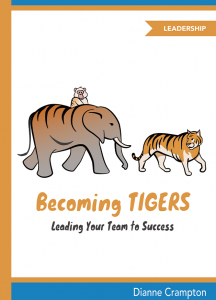
Pre-COVID19, the US economy was robust. Unemployment was at its lowest (3.5% in February) in the last 50 years. Since the COVID-19 struck, unemployment hit the roof at 14% in April. And it looks like it won’t go down anytime soon. So how does this impact Gen Z employees?
This isn’t good news especially for the Gen Z-ers, the demographic of employees succeeding Millenials. A few months ago, they were eager to dip their toes into a job market that had an employment rate of 5%. But that changed in a snap. Gusto, an online payroll service provider for U.S. small businesses found that workers below the age of 25 suffered the highest rate of layoffs (93%) during the pandemic compared to their older colleagues ages 35 and older.
Generation Z or Gen Z for short, (those born mid-to-late 90s up until the early 2000s), compose the youngest sector of the workforce. They had been in secondary school/college, or have recently begun their career before being forced to take a leave of absence (or worse, fired). Theirs is a digital generation, at home with social media and the internet.
Economists liken the trauma of this century’s pandemic to that of the Great Depression and WWII. The world was put to a halt by an enemy too small to be seen, and yet so deadly, it has sent populations to early graves. Almost overnight, Gen Z lost daily interactions with teachers, colleagues, and friends – the factors that fueled them through the travails of youth. They missed milestones such as graduations.
So how can organizations support Gen Z Employees?
Unlike the entitled demeanor of generations preceding them, Gen Z’s have been known to be a practical and pennywise lot. They are inclined to save and practice comparison purchasing. In a report by the Center for Generational Kinetics, 90% plan to buy their own home. 69% feel that saving for retirement is a must. And, 66% are anxious about not being able to pay off debt (or even accumulating debt).
This sensible mindset is reinforced by their predecessor’s mistakes. Gen-Zers are more anxious and entrepreneurial. They were already receptive at a time when their parents lost their savings or their jobs or both. They are also risk-averse. With the pandemic, it’s predicted that they are likely to take advantage of cost-saving measures – getting roommates or even staying home with their parents.
This information is good news for employers. Gen Z-ers are predisposed to rethinking their path. They are highly trainable and are likely more open to novel ways of thinking.
How can organizations harness the powers of the Gen Z mindset?
The best way to harness the powers of Gen Z is by providing Gen-Zers specific training – specifically on line micro-training. So, what might this look like?
Prioritize Skill Development
The benefits of online learning must connect what is learned with organizational initiatives while giving learners the opportunity to practice new skills. Without connecting learning to work and practice, the shift into the unconventional may have startling results down the line. For instance, learning has abruptly shifted into an environment less conducive for learning (at home in the presence of family members, or online with less interaction between peers). The remedy is to provide a learning circle where employees can further their practice with a group of people learning the same things.
Human resource research has already observed that Gen Z has been having difficulty transitioning from school/college/university into the labor force. Skills based learning that offers micro-training benefits while practicing skills within the workforce is preferred.
To deal with this predisposition (and to fully take advantage of Gen Z’s skill set and desire for job security), employers must design transition programs. This means structuring orientation programs in such a way that cater to mentoring and focus on expertise development. This means, extending orientation programs through the first year of work (onsite and online) and including training programs that help them integrate into the organization.
Likewise, training that zeroes-in on career support with the organization’s goals in mind must also be prioritized. It helps employees build on their strengths while understanding how what they do fits into the organization and supports organizational goals.
Teach Self-regulation
We often think self-regulation training ends in preschool. On the contrary, emotional intelligence becomes even more significant as a person becomes more independent. Self-regulation, empathy, and social skills are life skills that are often overlooked. Emotional intelligence is the cornerstone of a work environment that fosters respect. Unfortunately, this area is a challenge. What adds to attrition rates aren’t just hostile bosses. The inability to self regulate often leads to ghosting their companies (or others) when the simple solution is to advocate for themselves.
Gen-Zers, because of their youth, will need more time to self-explore. Employers can assist by offering training for emotional intelligence, conversational skills, genuineness skills, and training on giving and receiving feedback. Conflict in the workplace often arises not from a lack of skill or know-how. But rather, (from) the inability to communicate appropriately.
Get to their level and speak their “language”. Keep in mind that Gen -Zers are barely into adulthood. Engage them mentally and emotionally with material they can easily relate to.
Start your young recruits on the right foot from the get-go. Reduce conflict and improve performance through Micro-Training. Most important, instill trust, interdependence, genuineness, empathy, risk resolution, and success early on.
Care to dig deeper into the training and development of Gen Z?
The following links provide additional resources to take this conversation further:
- Gen Z and the Job Market
- Online Training Collections
- What Financial and Work Gems Did Gen Z and Geny Learn During the Great Recession
- TIGERS® Micro-Training Solutions
- Are You Prepared for Gen Z to Join Your Workforce?
- Are You Prepared for Gen Z to Join Your Workforce?
Copyright TIGERS Success Series, Inc. by Dianne Crampton
Becoming TIGERS – Leading Your Team to Success, is not your father’s business book. In this emotionally engaging business fable, Dianne Crampton takes us on a transformative journey through the jungle of myths, mistakes, and mastery of leadership. Dereck, a terrible command and control manager, has been given the weekend to save his job but instead has to spend it reading his daughter’s third grade book assignment with her, a parable about a tiger lord on the brink of losing his tribe due to a life threatening event. The simple lessons they learn just might transform YOUR life!
